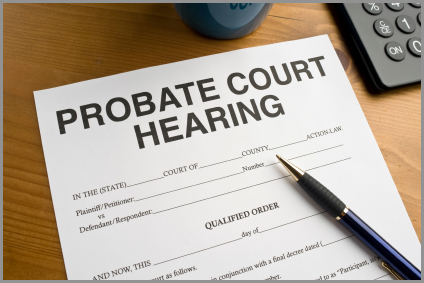By Debbie Forté
What is probate? Probate is the legal process whereby a will is “proved” in a court and accepted as a valid public document that is the true last testament of the deceased. A probate also officially appoints the executor (or personal representative), generally named in the will, as having legal power to dispose of the testator’s assets in the manner specified in the testator’s will. However, through the probate process, a will may be contested.The probate process includes: proving in court that a deceased person’s will is valid (usually a routine matter); identifying and inventorying the deceased person’s property; having the property appraised; and/or paying debts and taxes
What is a transfer on death deed (TOD) and who can use it? The new Transfer on Death Deed (or Beneficiary Deed) is an easy and inexpensive way to bypass probate court when you leave real estate without a Trust or a Will. It’s like a regular deed used to transfer real estate to your beneficiaries, with a crucial difference: It doesn’t take effect until your death. When you die, your real property is automatically transferred to your beneficiaries. All states do not allow this but California is one that does.
What is an estate; and what happens to it if i don’t have a will or trust? An “Estate” is simply the legal term used to describe all of your assets and tangible items you own. This includes: Your home and any real property you own; Furniture and furnishings; Clothing, jewelry and personal items; Car, Boat, Motorcycle; Bank and savings accounts; Retirement and pension funds; Stock, Bonds and IRA’s; and/or Interest in a business.
 Westside Story Newspaper – Online The News of The Empire – Sharing the Quest for Excellence
Westside Story Newspaper – Online The News of The Empire – Sharing the Quest for Excellence




